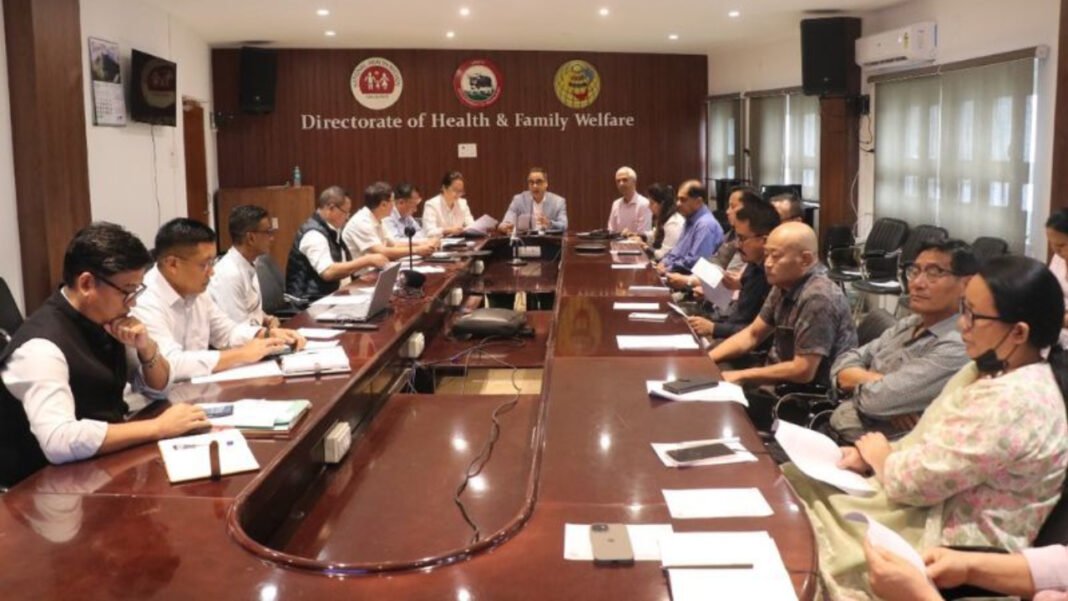HT Correspondent
DIMAPUR, Sept 9: The Centre for Cellular and Molecular Platforms (C-CAMP), a Government of India-supported initiative through its biotechnology department, signed an MoU with the Nagaland government to strengthen the state’s public healthcare system through innovative indigenous health technologies.
C-CAMP director and CEO Dr Taslimarif Saiyed and commissioner & secretary, Nagaland health & family welfare department, Anoop Khinchi made this announcement at the directorate of health & family welfare in Kohima on Tuesday.
This collaboration builds on C-CAMP’s earlier efforts to support Nagaland’s public health system.
The C-CAMP successfully established two oxygen-supported augmented hospital facilities in the state during the COVID-19 pandemic – a 50-bed facility at Dimapur district hospital and a 39-bed facility at Imkongliba Memorial District Hospital in Mokokchung. These facilities played a crucial role in enhancing oxygen-supported care capacity during the pandemic surge and continue to serve patients today.
Commissioner & secretary Khinchi said the objectives of the partnership include introducing and implementing innovative technologies for improving health outcomes in public health settings together with C-CAMP, adding the vision for the partnership is long-term.
It aims to build a resilient, inclusive, and innovation-driven health system that ensures equitable access to quality care for every citizen of the state, he said.
Speaking on the occasion, C-CAMP director Saiyed said the MoU provides a structured path to work with Nagaland’s health and family welfare department and build evidence of impact in the field.
Through the MoU, he said, C-CAMP and the Nagaland government will work together to introduce innovative health technologies that address state-specific health challenges, strengthen healthcare infrastructure and enhance clinical capacity in priority areas.
Saiyed said the strategic partnership will also foster stronger linkages between innovators, clinicians, and health workers to ensure effective adoption of these technologies for better health outcomes. He said the immediate next steps under the partnership will include identification and deployment of cutting-edge indigenous health technologies in areas such as maternal and child health, non-communicable diseases, and other critical public health areas relevant specifically to Nagaland through structured initiatives.












